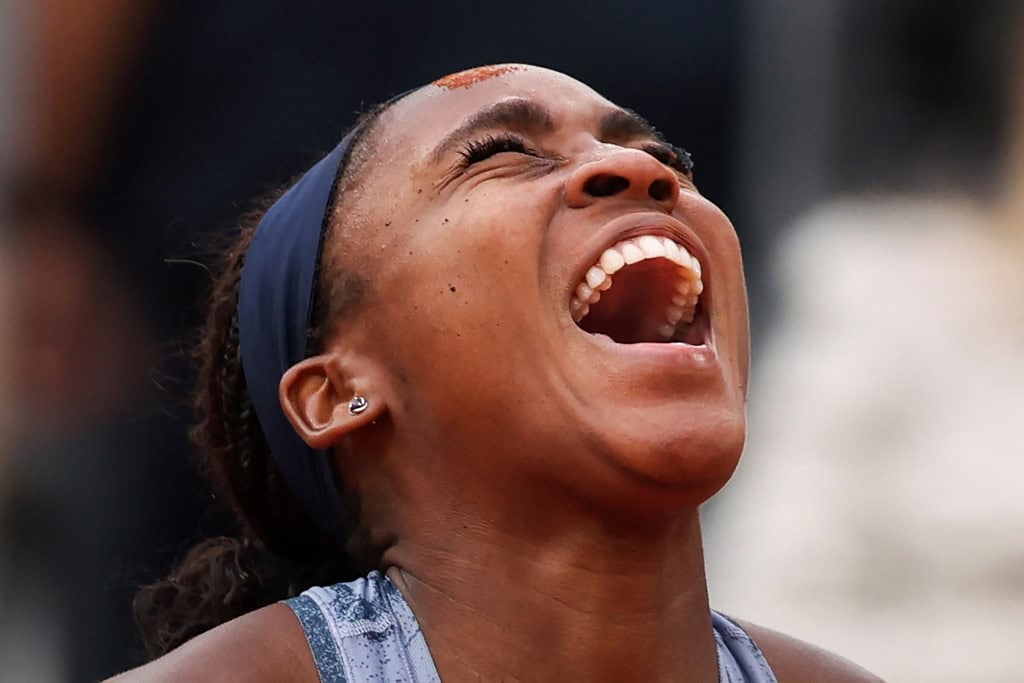Explosive and resilient under pressure, Coco Gauff (World No. 2) was crowned champion of Roland Garros after coming from behind to defeat Belarusian Aryna Sabalenka (World No. 1); 6-7 (5/7), 6-2, 6-4; this Saturday in Paris, in a rollercoaster match that lasted two hours and 38 minutes.
The United States national anthem played once again at Philippe Chatrier Court, ten years after Serena Williams’ last victory—Gauff’s idol since childhood. She once again beat Sabalenka on a major stage, having also rallied from a set down to defeat her in the final of her first Grand Slam title at the 2023 US Open.
At 21 years old, Gauff succeeds Poland’s Iga Swiatek on the winners’ list. Swiatek, who had won the last three editions (four total), was eliminated in the semifinals by Sabalenka. “I’ve been through so much since I lost here three years ago (to Swiatek). Honestly, I didn’t think I could do it… I think I was lying to myself, telling myself I definitely could,” Gauff said through tears in her victory speech.
Sabalenka, betrayed by nerves and the undisputed world No. 1 since last year, suffered a second consecutive Grand Slam disappointment, having also fallen earlier this year at the Australian Open—where she had won in both 2023 and 2024—against fellow American Madison Keys.
“Obviously it hurts a lot, especially after two tough weeks where I played great tennis. To show such terrible tennis in the final really hurts,” she admitted tearfully, highly self-critical.
A Rollercoaster of Emotions
“The wind picked up and I think I got too emotional. I lost my mental composure. I think it’s the worst final I’ve played in my career,” added the Belarusian in the post-match press conference. “It wasn’t a pretty final, but the job is done. With the wind, I knew it was going to be very tough and that it would come down to mental strength. It was decided in the final points,” summarized Gauff, smiling next to the trophy.
At a gloomy and windy Philippe Chatrier, the first set was a back-and-forth battle that Sabalenka survived in a tiebreak, which she had started down 3-0. Before that, both players had four service breaks in a set that began with Sabalenka storming ahead 4-1 in just 15 minutes—intimidating with both her racket and her shouts. At that moment, it seemed like the final would be a short monologue.
It took Gauff some time to find her rhythm. But the American, once a prodigy who reached Wimbledon’s fourth round at age 15 in 2019, is now a mature player. At 21, she has the experience to stay composed and fight until she finds her groove. She came back from a double break down and tied the set at 4-4.
Sabalenka, who had started like a rocket, began to doubt—and never recovered from that mental spiral. The match was on, and a psychological battle had begun, with Sabalenka ahead 1-0 after an hour and 18 minutes of play.
In the first Grand Slam final between the No. 1 and No. 2 seeds since 2018, Gauff didn’t waver and matched Sabalenka’s fast start from the first set, going up 4-1 with a double break. With dynamic, consistent play and remarkable physical endurance against Sabalenka’s powerful shots, Gauff leveled the match in just 36 minutes. She had clearly taken control.
The stage was set for a decisive set in a match defined by streaks, with both players’ strings of unforced errors—Sabalenka had 70—often inexplicable, giving their opponent a way back into the match. The ending was worthy of a suspense film. Gauff nearly lifted her arms in victory, but Sabalenka’s ball clipped the baseline.
On the second opportunity, it was over: the American hugged her opponent and dropped to her knees on the Parisian clay. Roland Garros has a new champion.






